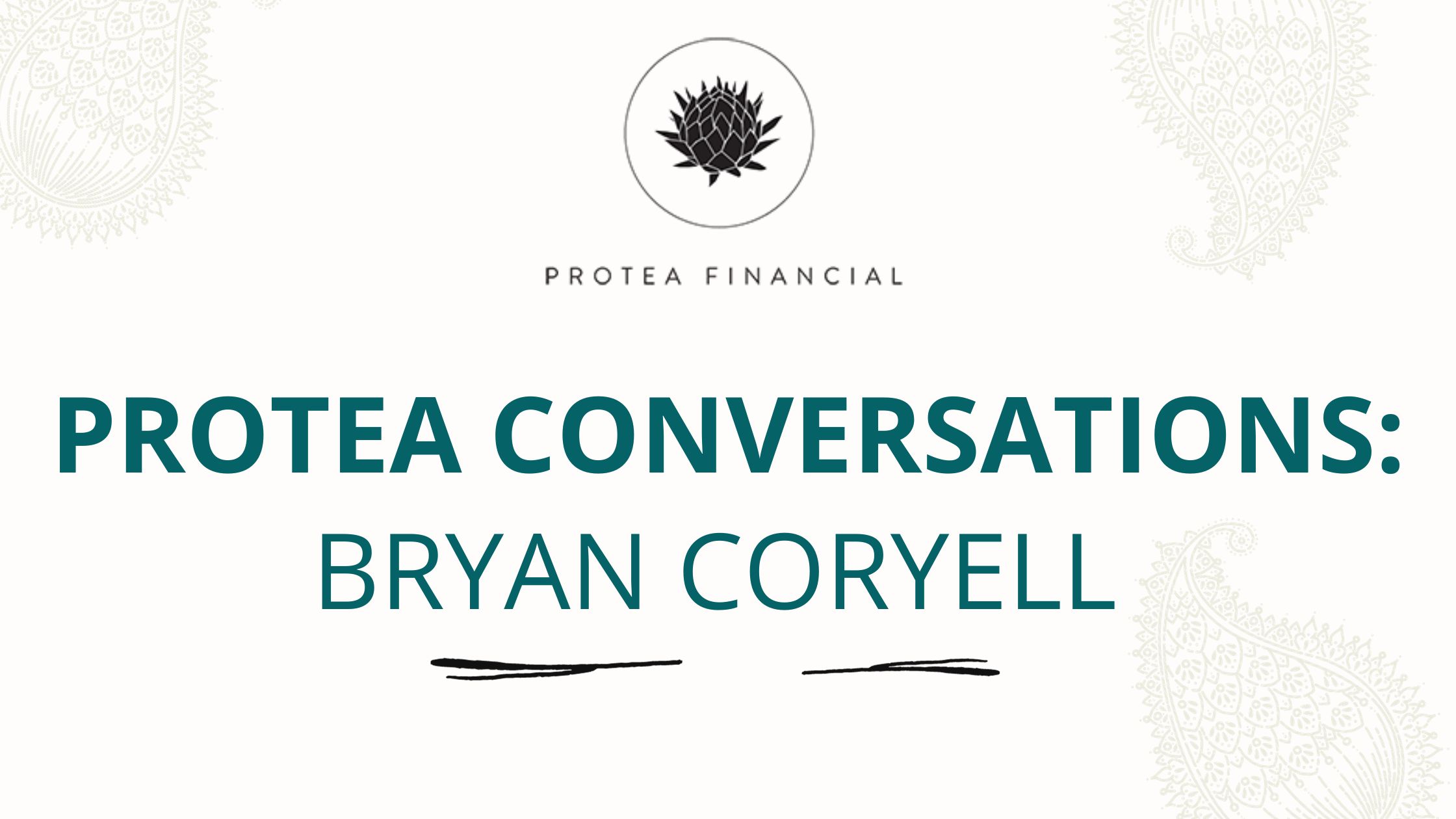Protea Financial was founded in 2014 to provide high-quality outsourced accounting at an affordable price. Given Protea’s flexible work environment, the Company especially appealed to accountants who wanted to re-enter the workforce after taking time off to start a family. This allowed Protea to attract extremely talented individuals who were previously overlooked. Protea strives to represent people from all backgrounds and provide an environment for them to grow and succeed in a setting that provides the flexibility and acceptance of who they are as people.
We selected the name Protea because is the national flower of South Africa and is a symbol of our connection. The Protea flower has become an ornamental flower because of this striking beauty and is included in arrangements and bouquets as a symbol of courage or daring to be better or a sign of positive transformation.
Protea Conversations in 2023 will focus on positive transformation and representation from all backgrounds. We are broadening our Conversations with the hope that these conversations will continue to create a forum to discuss the experiences, opportunities, and challenges leaders face, and how we can build a more diverse, inclusive, and successful environment for everyone.
In October 2023 we spend time with Bryan Coryell, a Senior Associate Attorney with Friedemann Goldberg Wargo Hess LLP, practicing in the areas of Trust and Estates, Business Law, and Trademarks.
Bryan studied music before law, receiving his bachelor’s degree and master’s degree from Holy Names University in 2001 and 2002, majoring in music with an emphasis in piano performance. After several years performing and teaching music, Bryan shifted his career focus to law and obtained his law degree from the University of San Francisco School of Law in 2008. He began his career handling a broad range of business litigation matters, which included some trust and estate matters, but which also included large-scale banking and financial litigation. Over the years, Bryan has shifted his focus increasingly on the trust and estate and business practice areas. He joined Friedemann Goldberg Wargo Hess LLP in 2019, where his practice focuses on all aspects of matters involving trusts and estates, business, and trademarks.
Tell us a little more about your decision to become an attorney? And your decision to practice in the areas of Business Law, Trust and Estates, and Litigation.
I have always been interested in the law, but my path to becoming an attorney was not a straightforward one. My passion for music initially took me in an entirely different direction. After receiving a master’s degree in music, I played professionally, entered international music competitions, and taught private students and in the college setting. Eventually, I realized that, while I love the piano and enjoy mentoring in the professional setting, I didn’t enjoy teaching piano much and didn’t want to make my living that way.
Which begged the question, now what? Law was the first answer that occurred to me. I had always enjoyed legal stories, whether in books, movies, or TV, and have always been drawn to subjects involving fairness and justice. When considering my career change at the time, I recall thinking back fondly to a middle school mock trial experience where I had defended the Big Bad Wolf against murder charges. That may seem silly, but I remembered that I had volunteered for the role. I could have sat back and been a juror or a witness, something simpler, but I wanted to be one of the attorneys, which meant something to me when pondering my path forward.
When I combined my interest for the law with the practical fact that I could apply to law school without having to obtain another undergraduate degree, the choice was clear.

What has been the biggest challenge you have experienced in reaching your current success (personally and professionally)?
Many people talk about the importance of finding balance in life—balance between work, family and social life, and one’s hobbies and interests. But thinking about the issue from the perspective of balance focuses solely on time. How do I balance all of these obligations in the time that I have? What percentage of my time can I afford to devote to each of these areas? If you’re like me and have a lot of interests and hobbies and enjoy spending time with both friends and family and want to have a rewarding career, it can very easily seem like there isn’t enough time for everything.
That’s because approaching the issue as one of balance doesn’t help you decide what’s actually important to you. This was a huge challenge for me, and I felt overwhelmed constantly by what seemed like endless obligations. Until I started thinking about the issue as one of integration. Instead of asking how to balance all of my existing obligations, I started asking myself how each activity or person contributed to my experience of life, which helped me establish priorities and decide how to integrate all of these aspects of myself into a life experience that is meaningful to me.
What are your short-term goals of your career and yourself?
For my career, my short-term goal is to continue growing my legal practice in the areas of trusts and estates, business, and related litigation. For myself, I’ve recently committed to learning new piano repertoire, which I haven’t focused on in years, and I’ve started practicing some new pieces that I’ve always wanted to learn.
What is the best piece of advice you have ever received that has helped you in your success?
Be aware of your assumptions. This may seem obvious in the law, which often requires logical reasoning free from unsupported assumptions. But the truth is, we all make assumptions every day—they are necessary shortcuts for navigating an increasingly complex world and they are useful in that context. The problem is that assumptions can be so automatic or become so ingrained that we never realize or lose sight of the fact that we’re making an assumption. Such assumptions then often lead to unnecessary miscommunications and conflict. Clear communication that seeks to understand, rather than assume, the other person’s perspective, goes a long way toward avoiding such issues.
What is the piece of advice that you wished you had gotten when you were starting out?
It’s not about you; it’s about perspective. It will likely come as no surprise that the law has its fair share of difficult and toxic personalities. Whether it’s an opposing counsel who insists on being unreasonably aggressive or a grieving client experiencing a difficult time in life, practicing law often puts me in situations in which I must face people who are either looking to create or seem unable to avoid creating conflict.
Early in my career, I took these interactions personally, assuming that I must have done something wrong or offensive to provoke such a response. Since I try to be measured and reasoned in my response, even when upset, I could not understand why people were treating me this way and it was often deeply distressing. Until I realized that it was about differences in perspective. I could be calm about a situation and the other person upset, but their decision to be upset did not mean that I should also view the situation as upsetting. This perspective allows for compassion for the other person’s point of view without adopting it as your own.
What advice can you give to others to help them be better leaders?
Listen, listen, listen. It’s almost a cliché these days to talk about the importance of listening. But, I don’t mean merely hearing someone out or letting them vent their frustrations. True listening seeks to understand the other person’s perspective on what is being communicated, which is why one of the traits often associated with good listeners is that they ask a lot of questions. They are curious and seek a deeper understanding of what the other is trying to communicate.
The greatest leaders are able to build strong, functional coalitions among people because their understanding of the disparate group views attained through listening allows them to find the points in common from which to build a community.

Can you share something interesting about yourself that will provide insight into who you are outside of the professional space?
Music is still a big part of my life. I still play piano as often as I can find the time, and I attend many concerts throughout the Bay Area. I love all things art and enjoy going to museums and other performances as well. Beyond that, I love to cook and bake and I enjoy the outdoors. Many a weekend I can be found mountain biking or hiking in the morning and then whipping up something delicious in the kitchen after.
As a thank you to our interview and Protea’s commitment to more diverse and inclusive leaders, Protea will donate to Canine Companions (https://canine.org/). Canine Companions is leading the service dog industry so their clients and their dogs can live with greater independence. They provide service dogs to adults, children and veterans with disabilities and facility dogs to professionals working in healthcare, criminal justice and educational settings. Since our founding in 1975, our dogs and all follow-up services are provided at no cost to our clients.
Independence shouldn’t be limited to those who look or live a certain way. Disability reaches all races, classes and backgrounds, and Canine Companions will too. Clients come to Canine Companions because of our reputation, the quality of our dogs, the experience of our training staff and the desire to lead life with greater independence. We are committed to providing services to all qualified clients.
Reach out to The Protea Family for questions, guidance, or just help with the financials of your business. Our experts are here to help!



